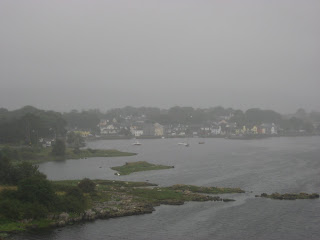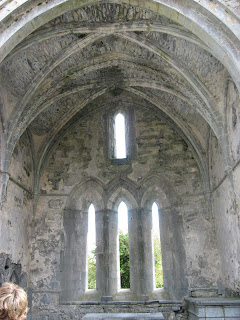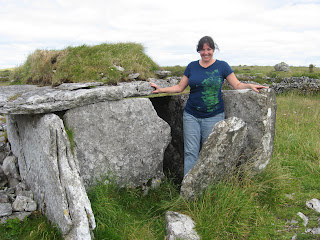Here are some more random shots of the flora (ha ha! Betsy!) and fauna around Ballyvaughan.
 |
| our upstairs neighbor Christy and Bella, his rescue greyhound |
 |
| Leapy, Christy's other dog chilling in front of our fireplace |
 |
| flowers and rock wall in front of our apartment |
 |
| my alarm clock every morning, the cows in the field next door |
 |
| bonus to treacherous mountain pass = views like this, the Caher River coming out of the mountains and down to the sea |
 |
| boulder left perched precariously by wind and the last ice age |













































